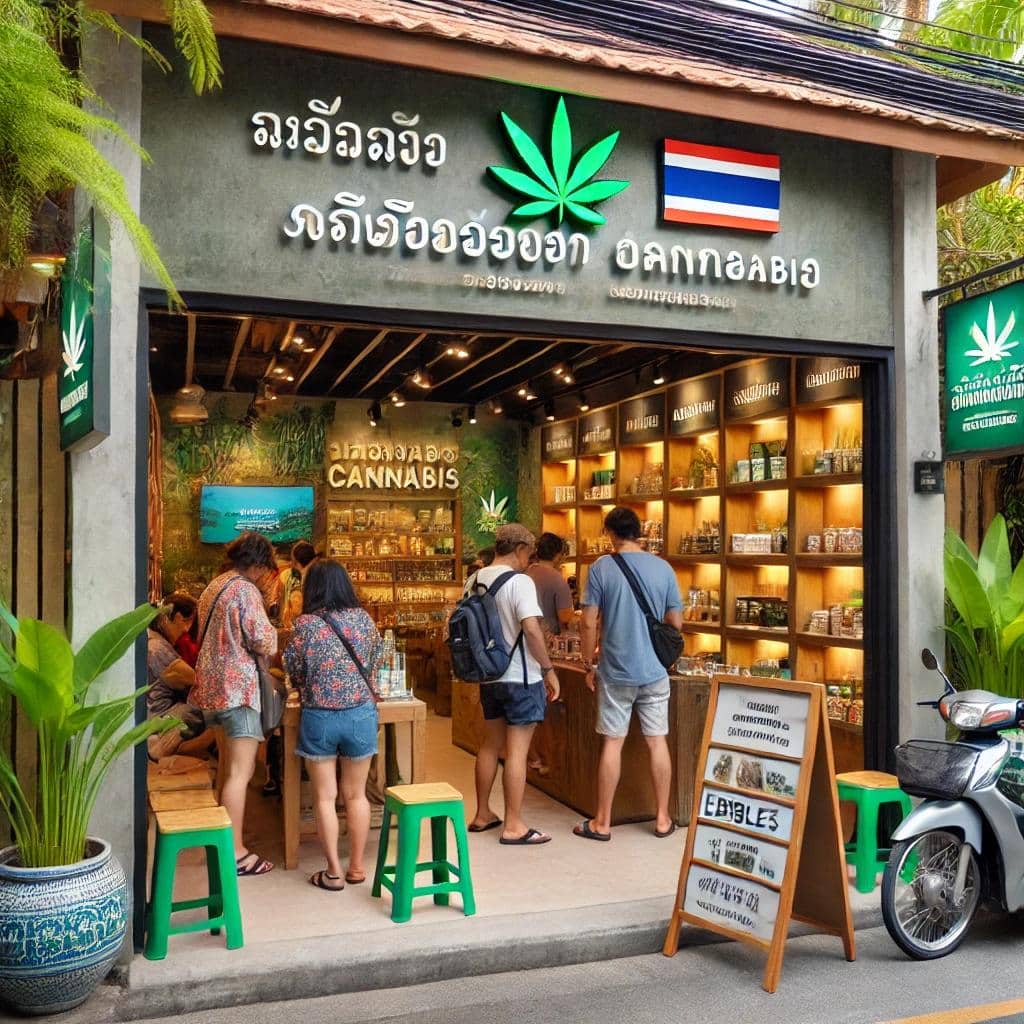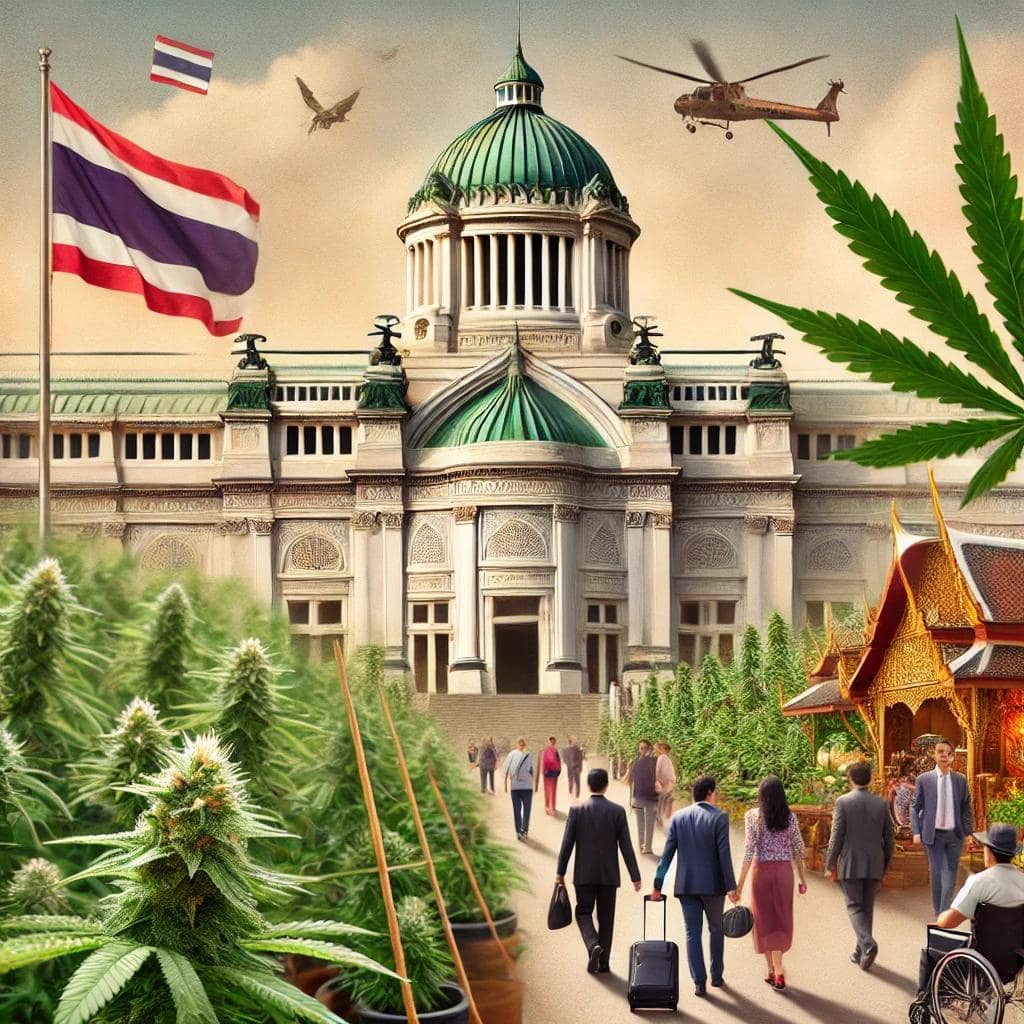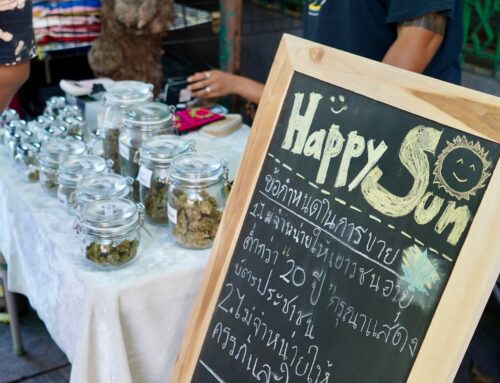Thailand’s Cannabis Journey: A Historical Overview
Thailand’s relationship with cannabis dates back centuries, as it was traditionally used in Thai medicine for pain relief and muscle relaxation. However, in the mid-20th century, cannabis was criminalized under the Narcotics Act of 1979, which aligned with global anti-drug campaigns. For decades, Thailand imposed strict penalties for cannabis possession and consumption, including imprisonment.
The tide began to turn in the 2010s when global attitudes toward cannabis started to shift. In 2018, Thailand made headlines by legalizing medical cannabis, becoming the first country in Southeast Asia to do so. The move was seen as progressive in a region known for its strict drug laws. It opened the door to the cultivation, sale, and consumption of cannabis for medical purposes, though recreational use remained illegal.
Fast forward to 2022, when Thailand took an even bolder step by decriminalizing cannabis. This unprecedented move created a legal gray area, allowing the use of cannabis for certain purposes but without clear regulations governing recreational use.
Political Changes in Thailand and Their Impact on the Cannabis Industry
Thailand’s cannabis laws have been heavily influenced by the political parties in power. In recent years, the country’s political landscape has been shaped by the delicate balance of power between conservative and progressive factions. The cannabis industry, which many view as a potential economic boon, has become a political battleground.
- The Role of the Progressive Government
The decriminalization of cannabis in 2022 was largely driven by the Bhumjaithai Party, a member of the ruling coalition at the time. The party’s pro-cannabis stance was a key part of its election platform, and its leader, Anutin Charnvirakul, played a pivotal role in pushing for cannabis reform. The Bhumjaithai Party advocated for cannabis to be used not only for medical purposes but also as a potential cash crop to boost the agricultural sector.
Under their influence, cannabis dispensaries flourished across Thailand, and cannabis tourism began to emerge as a new niche, attracting tourists from countries where cannabis is still illegal. The economic potential of the industry became evident, with the government seeing it as a way to recover from the economic losses caused by the COVID-19 pandemic.
- Political Opposition and Concerns
Despite the rapid growth of the cannabis industry, political opposition to its expansion remains strong. Thailand’s conservative factions, including military-aligned politicians and the royalist establishment, have voiced concerns about the social impact of cannabis decriminalization. They argue that the lack of clear regulations could lead to widespread recreational use, particularly among young people, and potentially damage Thailand’s conservative social fabric.
These political tensions reached a peak during the 2023 elections. With no single party winning a clear majority, coalition negotiations were fraught with disagreements over cannabis policy. The outcome of these political negotiations has created uncertainty for the industry, as potential changes to cannabis laws could either strengthen or severely limit the industry’s growth in 2024.

Impact on Local Cannabis Users
The shifting political landscape in Thailand has had significant implications for local cannabis users. While medical cannabis is now widely accepted, the decriminalization of recreational cannabis remains a contentious issue.
- Legal Gray Areas and Enforcement
One of the major challenges facing local cannabis users is the lack of clarity surrounding cannabis laws. While cannabis has been decriminalized, recreational use is not fully legal. This legal ambiguity has left many users uncertain about what is permissible and what is not.
For instance, public smoking of cannabis remains illegal, and violations can result in hefty fines or imprisonment. Additionally, cannabis products with THC concentrations exceeding 0.2% are considered narcotics under Thai law, further complicating the legal landscape for consumers. These restrictions have made it difficult for local users to navigate the cannabis market, leading to confusion and occasional legal trouble.
- Social Acceptance and Stigma
Despite the legal advancements, cannabis use in Thailand is still stigmatized in certain circles. Traditional Thai values, influenced by Buddhism and conservative social norms, often view drug use as immoral. This cultural stigma creates a divide between the growing cannabis community and segments of the population that remain resistant to the idea of cannabis as an acceptable part of Thai society.
Cannabis users, particularly those consuming it for recreational purposes, may face judgment or discrimination from more conservative groups. This has created a complex social dynamic where cannabis is legally accessible but not always socially accepted.
The Rise of Cannabis Tourism in Thailand
One of the most notable impacts of cannabis legalization has been the rise of cannabis tourism. Thailand’s relaxed cannabis laws have attracted tourists from countries where cannabis remains illegal, positioning the nation as a cannabis-friendly destination.
- Cannabis Dispensaries and Tourism Hotspots
Since 2022, cannabis dispensaries have popped up in major tourist hubs such as Bangkok, Chiang Mai, and the islands of Phuket and Koh Samui. These dispensaries offer a variety of cannabis products, from oils and edibles to high-THC flowers. Tourists can purchase cannabis legally, though the rules for consumption remain strict.
Cannabis cafes and wellness retreats have also become popular attractions. These establishments offer a combination of cannabis-infused products, relaxation therapies, and holistic health experiences, catering to tourists seeking both recreational and therapeutic cannabis experiences.
- Regulations for Tourists
While tourists can legally purchase cannabis in Thailand, they are subject to the same restrictions as locals. Public smoking is prohibited, and tourists must ensure that any products they consume contain less than 0.2% THC to comply with the law. Additionally, tourists are advised not to bring cannabis products back to their home countries, as they could face legal consequences upon re-entering nations where cannabis is still illegal.

Economic Opportunities and Challenges for the Cannabis Industry
The potential for Thailand’s cannabis industry to become a significant economic driver is undeniable. The industry has attracted investments from both domestic and international companies, particularly in the medical cannabis sector, where Thailand’s agricultural capabilities offer a competitive edge.
- Economic Growth and Job Creation
The legalization of cannabis has spurred the growth of ancillary businesses, such as cannabis tourism, wellness centers, and product manufacturing. This has created jobs in various sectors, from agriculture to retail, and boosted local economies, particularly in rural areas where cannabis cultivation is concentrated.
- Challenges and Uncertainty
Despite its rapid growth, the cannabis industry in Thailand faces several challenges. The most significant is the political uncertainty surrounding cannabis laws. With opposition to full legalization still strong, businesses operating in the cannabis sector must navigate a constantly shifting regulatory environment.
Moreover, there are concerns about over-saturation in the cannabis market. The initial boom in dispensaries and cannabis-related businesses has led to increased competition, making it difficult for smaller businesses to survive in the long term.
Conclusion: The Future of Cannabis in Thailand
As of 2024, the cannabis industry in Thailand remains in flux, shaped by political negotiations and evolving social attitudes. While the economic potential of cannabis is evident, political opposition and legal uncertainties continue to create challenges for the industry.
For local users, the ambiguous legal framework and lingering social stigma make cannabis use a complex issue. For tourists, Thailand remains an attractive destination for cannabis experiences, though strict regulations must be followed.
The future of Thailand’s cannabis industry will depend largely on the outcome of ongoing political discussions. Whether Thailand fully embraces cannabis legalization or retreats to more conservative policies, the influence of politics on the industry will remain a central theme in the years to come.








